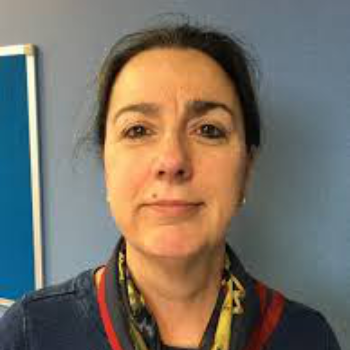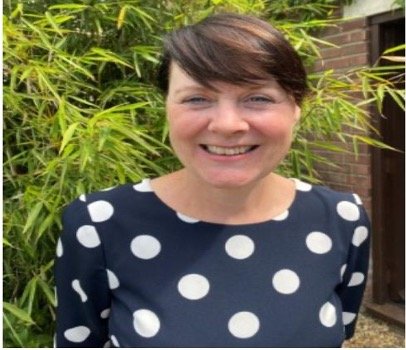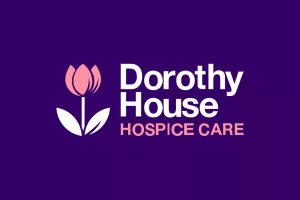South West

Click to expand
Co Chair
Cheryl Angco
Clinical and Quality Assurance Team Lead: Ashfield Services
Cheryl Angco is a dedicated Clinical and Quality Assurance Team Lead at Ashfield Services and the Clinical Director of InvstinU L&D Consultancy, with over 25 years of experience in the healthcare sector.
Her journey began working nights in a local care home while still in sixth form, leading her to become a qualified Nursery Nurse, Adult Nurse, District Nurse, and Educator—all while raising a family of four children.
Her diverse roles include Community Intravenous Specialist Nurse, Manager, and Trainer, covering the entire South West of England and South Wales. Cheryl has also served as a Global Clinical Auditor with Bupa Centre.
For the past 10 years, she has been a Qualified Educator and spent seven years as the Head of Clinical for a National Training Organisation, where she developed and delivered comprehensive training programs tailored to the unique needs of various healthcare settings. These included the original authorship and ongoing evolution of the beloved CHAPs Course (Care Home Assistant Practitioner). Personal care of both clients and trainers were paramount and reflected in the successful multidisciplinary clinical team who felt they belonged whilst enjoying the independence of self employment.
Cheryl’s extensive experience has equipped her with a unique blend of clinical expertise and a commitment to quality improvement. Cheryl believes in the power of evidence-based practice and continuous improvement, ensuring her clients receive the highest standard of training and support.
With a deep understanding of clinical protocols, quality management systems, and continuous improvement methodologies, Cheryl excels in leading cross-functional teams to implement effective quality assurance strategies that enhance patient outcomes and optimise operational efficiency. Emphasising collaboration and communication, she strives to foster a culture of quality and accountability, ensuring clinical practices not only meet but exceed industry standards.
A strong advocate for sharing knowledge, Cheryl aims to empower others to protect their patients, their profession, and themselves. Recognising the challenges of maintaining a healthy work-life balance, she emphasises the importance of wellbeing and holistic therapies in her own self-care and the wellbeing of others.
Cheryl’s broad and extensive career in Health and Social Care across various settings provides a unique perspective. Since leaving the NHS, Cheryl became very passionate about advocating for the private sector, including through successful tenure as a nominated board member with the Royal College of Nursing (RCN). The SW co-chair position will provide Cheryl the opportunity to leverage her diverse career, qualifications, and skills to make a meaningful impact.
Additionally, Cheryl has a privileged viewpoint of the sector, hearing firsthand from both clients and delegates about the challenges they face.
Co Chair
Cindy Willcocks
Director of Arterne / Registered Mental Health Nurse
Chief Nurse

Jill Crook
Regional Director of Nursing
Jill has been a Director of Nursing for 20+ years in a variety of strategic roles including nationally within Chief Nursing Officers directorate, strategic health authority, at a Primary Care Trust and latterly with NHS England and Improvement.
Jill’s clinical background is within both mental health and general nursing with a large focus on community settings including professional development and leadership.
In addition to the current professional leadership role Jill is also has the portfolios for Mental Health, Learning Disabilities, Autism and Children and Young People, Continuing Health Care and Safeguarding
Deputy Chief Nurse

Bernadette Edwards, RGN MSc
Regional Director of Nursing
Bernie has been a nurse for over 30 years and a Senor Nurse Leader for over 15 years working across a variety of sectors including midwifery, acute, community and primary care provider and commissioning organisations .
Her current Deputy Director of Nursing role supporting Professional Leadership, Quality and System Development . Her MSc had a focus on compassionate leadership in healthcare.
Bernies clinical background is in general nursing across Children and Adults primarily leading in health and care integrated teams specifically within community health care settings and Continuing Healthcare policy . Bernie has significant experience in successful transformation and improvement in healthcare.
A significant part of Bernie’s role is to support Nursing Leaders across the South West to deliver the Chief Nursing Officers programmes such as Children and Young People, All age Continuing Care, Community and Primary Care Nursing, Professional Nurse Advocacy, Safer Staffing and Palliative and End of Life Care.
Council Members
South West
| Member Name | Bio | Job Title | Organisation |
|---|---|---|---|
| Cheryl Angco (Co-Chair) | Clinical & Quality Assurance Team Lead | Ashfield Services | |
| Vacant (Co-Chair) | 0 | 0 | |
| Jill Crook | Director of Nursing Professional and System Leadership and acting CNO | NHSE SW | |
| Shelagh Meldrum | Read | Chief Nursing Officer | NHS Somerset ICB |
| Marie Crofts | Chief Nursing Officer | NHS Gloucestershire ICB | |
| Jane Haros | Deputy Director of Nursing | NHS Gloucestershire ICB | |
| Rosi Shepherd | Chief Nursing Officer | NHS BNSSG ICB | |
| Mary Lewis | CNO Sirona - Representing CNO Rosi Shepherd | NHS BNSSG ICB | |
| Denise Moorhouse | Deputy Chief Nursing Officer | NHS BNSSG ICB | |
| Gill May | Chief Nursing Officer | BSW ICB | |
| Susan Bracefield | Chief Nursing Officer | Cornwall & Isle of Scilly CB | |
| Penny Smith | Chief Nursing Officer | NHS Devon ICB | |
| TBC | ICB CNO | NHS Dorset ICB | |
| Vicky Melville | Deputy Director of Nursing, Quality & Professional Practice | NHS Dorset ICB | |
| Keryn Morris | Read | Locality Manager (South West) | Skills for Care |
| Sarah Winfield- Davies | Lead Nurse, Independent Health and Social Care (South West) | RCN | |
| Michele Harrison | Regulation Adviser for South West, Jersey and Guernsey | NMC | |
| Caroline Holt | Employer Link Service Adviser Independent Health and Social Care | NMC | |
| Charlotte Fry | Read | Independent Nurse Consultant | Caring Footsteps |
| Patricia Schofield | Read | Professor in Clinical Nursing School of Nursing and Midwifery (Faculty of Health) | Research - University of Plymouth |
| Sean Mahoney | Student Nurse | Exeter University | |
| Jodie Andrews (nee Nelder) | Read | Registered Manager | Residential Care - Grayareas Limited |
| Cathy Rant | Lecturer - Academy of Nursing Clinical Practice Lead | University of Exeter | |
| Margot Whittaker | Read | Director of Compliance & Nursing | Southern Healthcare |
| John Powell | Read | Director | Unicare Devon |
| Angelique Atack | Programme Lead/ Lecturer - Nursing Associates | Bournemouth and Poole College | |
| Lucy Brown | EU Horizon Clinical Delivery Lead | The Centre for Sustainable Healthcare | |
| Dedrey Charles | Nurse/Registered Manager | Muscliff Nursing Home | |
| Simon Fagg | Clinical Nurse Advisor | Milestones Trust | |
| Ashleigh Fox | Read | Transforming Care Director (RNLD) | Catalyst Care Group |
| Jakki Whitehead | Read | Admiral Nurse | Riversway Nursing Home |
| Teresa Chinn | Read | Registered Nurse | Brunelcare |
| Sarah Saunders | Clinical Support Nurse | St Monica Trust | |
| Kim Whitlock | Read | Tissue Viability Matron Infection Control and Tissue Viability | North Bristol NHS Trust |
| Paula Gue | Head of Nursing | Domiciliary care - Somerset Care | |
| Hilary Robinson | CEO / RN | RCPA (provider association) | |
| Anne Lewin | Home Manager | Royal British Legion (charitable sector) | |
| Sareena Modommattathil | Registered Manger | Notaro Homes | |
| Tina Waterman | Registered Manager | Rosewood & Brookhouse Ltd. | |
| Esther Mackillican | Read | Admiral Nurse | Dorothy House (hospice) |
| Vanessa Ongley | Learning Academy Lead | BSW ICB | |
| Leanne Vinakadina | Read | Deputy Home Manager | Caring Homes |
| Sam Walker | Registered Nurse | Horsfall House | |
| Lia Alves | Practice Educator | Cornwall Primary Care Training Hub, and Truro College Adult Nurse and Health Allied Lecturer | |
| Lisa Vogwell | Deputy Director of Nursing & Quality | NHS Foundation Trust South Western Ambulance Service | |
| Ben Miller | Read | Registered Mental Health Nurse | 0 |
| Helen Stapleton | Associate Director of Strategic Workforce Transformation | Somerset Integrated Care System | |
| Amanda McKenna | Practice Support (Dorset) / IPC Practitioner (Southwest) | NHS Forensic and Offender Healthcare Services | |
| Annie Dale | Head of Nursing | South West Prisons | |
| Jennifer Charlewood | Senior Professional Manager (Community & Primary Care Nursin & Professional Nurse Advocates) | Professional & System Development, Regional Nursing Directorate (NHS England South West) | |
South West Regional Organisations
| Organisation | Website - Click to follow | Contact | Details of organisation | Locality Covered | |
|---|---|---|---|---|---|
 | https://www.dorothyhouse.org.uk/ | Esther Mackillican | esther.mackillican@dorothyhouse-hospice.org.uk | Dorothy House Hospice Care provides free palliative and end of life care to a population of over 550,000 people in Bath & North East Somerset, and parts of Somerset and Wiltshire. The Hospice provides medical services, family support, bereavement services and hospice at home care for people who are approaching death. More than 90% of the care Dorothy House provides is out in people’s homes and community settings, with the remaining at the Winsley site. The Hospice is partly funded by the NHS, but predominantly by donations, incomes from 27 shops, and fundraising efforts. | Bath & North East Somerset, and parts of Somerset and Wiltshire |
Projects
Dorset Hydration Project - Every Drop, Every Cup and Every Bite Counts

Organisation
NHS Dorset and Dorset’s Integrated Care Partnership
Our short video
Our hydration website with downloadable resources, leaflets, and infographics
Project Summary
A system-wide group was developed called the “Hydration, Nutrition, Continence and C. difficile” with the aim to support the delivery of the UK 5-year national action plan for antimicrobial resistance.
A range of educational hydration resources were co-designed with stakeholders and experts professionals across Dorset as a joint project to raise the awareness and understanding of the importance of hydration to improve health and wellbeing.
Educational hydration leaflets for both staff and residents/patients were co-produced providing simple, clear, and visual information about a variety of food, drinks, and fruit as well as some of the worries associated with fear of incontinence and increased risk of falls. Hydration tabards featured a visual message, “How do you like your CUPPA” ensuring that residents and patients are encouraged and offered drinks to their exact preferences.
To strengthen the importance of hydration, a local campaign was launched across Dorset and shared through social media channels as well as through hydration page hosted on “Stay Well Dorset”. Hydration – Stay Well Dorset with downloadable resources and infographics. The campaign’s hydration video has been successfully utilised as part of the educational seminars at Bournemouth University for Adult Nursing, Mental Health, Children and Young People Foundation Years.
Several care homes and wards from NHS trusts took part in the hydration pilot who created an innovative way of promoting the hydration and educating around the benefits that hydration can have on health and wellbeing.
A number of care homes reported reduction of incidents of urinary tract infections and falls. Promoting hydration has led to happier, healthier residents with families being thrilled to see their loved ones more involved, energetic and more alert.
The hydration project was found to be a huge success thanks to innovative and committed partnerships with colleagues across the system, who have found creative solutions to promote hydration not just for their patients and residents, but also for the staff and families involved in their care.
Resilience Based Clinical Supervision

Organisation
The Foundation of Nursing Studies (FoNS)
Project Summary
The Foundation of Nursing Studies (FoNS) is delighted to offer a fully-funded programme of Resilience-based Clinical Supervision specifically for nurses in England’s social care sector.
Nursing in a social care setting is recognised as increasingly challenging in today’s world. Resilience-based Clinical Supervision (RBCS) is a way of supporting you and your team by recognising your own and others’ emotions and how you can positively respond to them.
RBCS is a tried and trusted model experienced by hundreds of nurses across the country and beyond. The model’s rationale is to increase an individual’s ability to respond positively to the emotional and physiological demands of their role.
Resilience-based Clinical Supervision is not management supervision or appraisal, it is a form of restorative clinical supervision.
South West Regional Meetings
Future Meetings
Meeting Date
28th January 2026 @ 09:30
Previous Meetings
Meeting Date
Documents
15th October 2025
16th July 2025
Email sent on behalf of the Southwest SCNAC Co-Chairs, Sarah Wytrykowski and Cheryl Angco
Dear Southwest SCNAC Members,
Please find attached the Attendance, Apologies and Notes document for this quarters Southwest SCNAC Meeting, along with the action points agreed.
As a reminder, if you have not done so already, please could you forward a high-res photo and short bio (approx. 100 words) so that we can including them on our council page as we are currently missing photos/bios from 31 out of 46 council members and it would be lovely to have a full house.
If you have any queries, or require further information, please do get in touch.
Warm regards,
Sarah and Cheryl
9th May 2025
23rd January 2025
24th September 2024
25th June 2024


